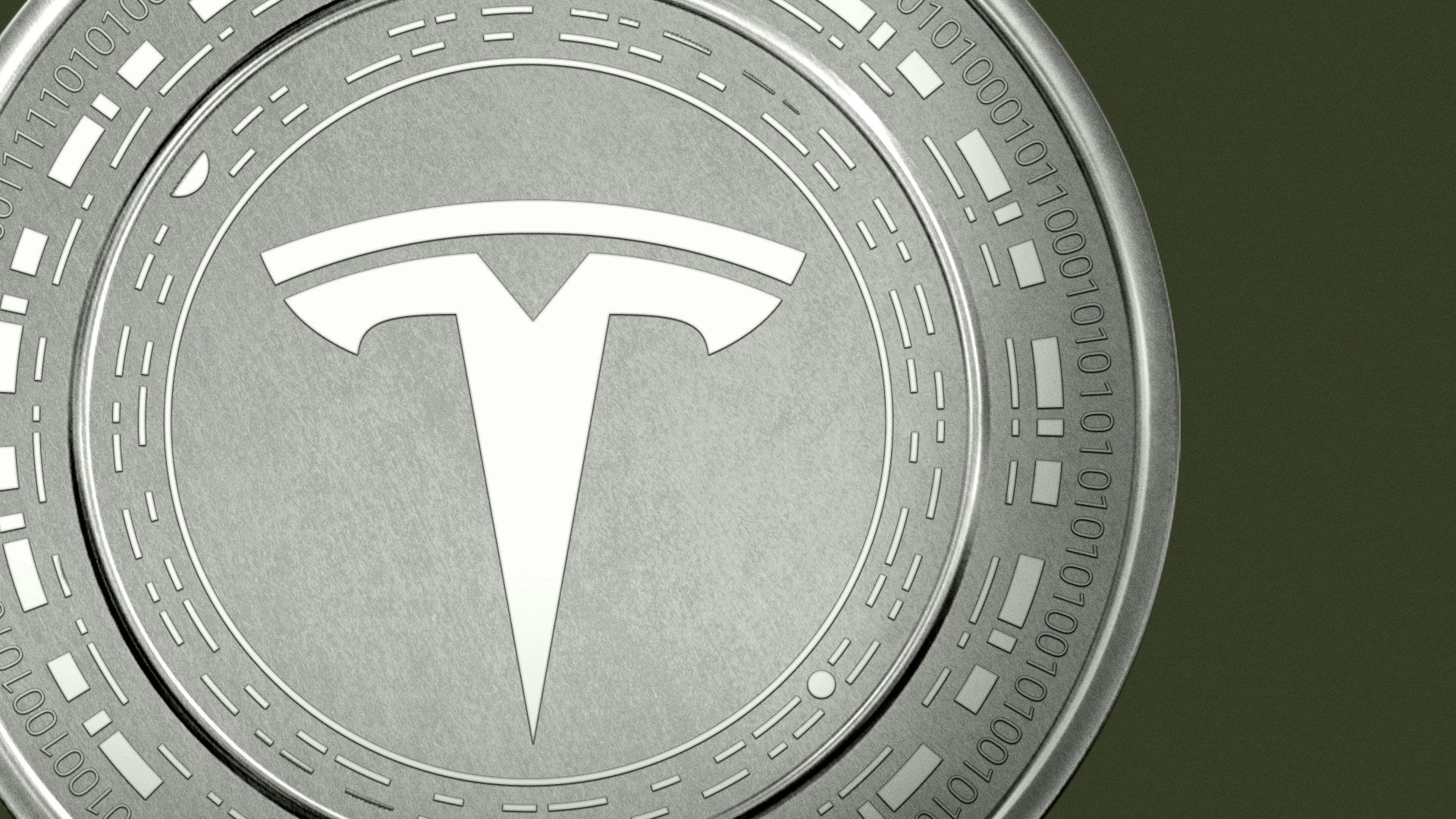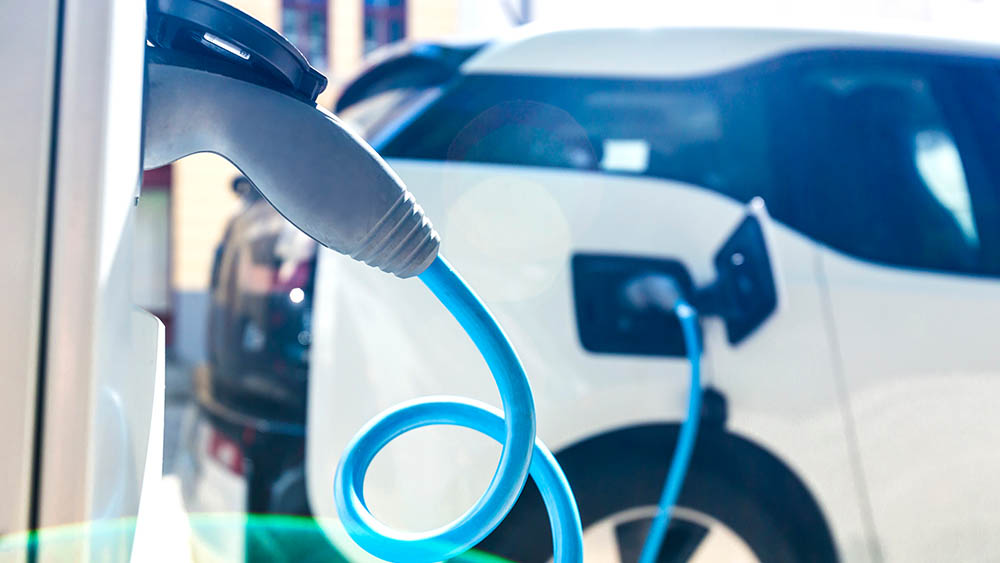| | | | | | | Presented By the National Mining Association | | | | Generate | | By Ben Geman ·Feb 09, 2021 | | ☀️ Good morning. Today's Smart Brevity count is 1,241 words, 4.7 minutes. 🎶 And today marks exactly 38 years since Prince (RIP) released an all-timer of a single that's today's intro tune... | | | | | | 1 big thing: Making sense of Tesla's bitcoin move |  | | | Illustration: Eniola Odetunde/Axios | | | | I didn't have time to shoehorn this into yesterday's edition, but ICYMI, Tesla bought $1.5 billion in bitcoin and plans to start accepting it as payment for cars "in the near future." Driving the news: The announcement sent bitcoin prices soaring and, per the Wall Street Journal, the $1.5 billion investment is "likely among the largest by a public company" in the digital currency. The revelation in an SEC filing comes after Tesla CEO Elon Musk has already been hyping cryptocurrency on Twitter. Why it matters: The move could bring wider acceptance of cryptocurrency as a transaction method, analysts said. - "Tesla is unleashing the first major consumer experiment in not just bitcoin but cryptocurrency as whole," said Danyaal Rashid, an analyst with the firm GlobalData, in a note.
- Wedbush Securities analysts called it a "potential game changing move for the use of bitcoin from a transactional perspective."
Quick take: I can't crawl around in Elon Musk's head (and don't want to). - But Tesla's ability to capitalize on a cool factor — and maybe even a rebel vibe — and keep attracting attention is important to its brand.
- With more and more upstarts and legacy automakers bringing EVs to market, it's a way to keep standing apart.
What they're saying: Axios' Felix Salmon has a piece this morning that dissects Musk's move. He notes it's probably just "Elon being Elon," but there's a certain logic too. Take it away... - It displays his leadership in a new domain — cryptocurrencies — and cements Tesla's position as a company that can afford to invest $1.5 billion in a risky non-core venture. Tesla's come a long way from its near-death experience in 2018.
- By making such a large bet, Musk becomes something of a hero to the bitcoin faithful. They're often affluent, tech-savvy early adopters — exactly the market that Tesla is targeting with its cars.
What we're watching: Bitcoin mining has a substantial carbon footprint, and Felix notes it will be interesting to see whether and how environmentally conscious investors react to Tesla's move. Yes, but: Estimates of Bitcoin-related CO2 emissions are all over the place, and some widely cited figures may be way too high. |     | | | | | | 2. India's energy surge makes it pivotal for the climate |  Reproduced from India Energy Outlook 2021, IEA; Chart: Axios Visuals India is projected to see the biggest increase in energy demand of any country over the next 20 years, a new International Energy Agency report finds. Why it matters: It's already the third-largest energy-consuming nation, even as per-capita energy use, car ownership and other metrics are far below the global average. - There's a "tremendous opportunity for India to successfully meet the aspirations of its citizens without following the high-carbon pathway that other economies have pursued in the past," said IEA head Fatih Birol.
Yes, but: While renewables have been growing, right now coal, oil and solid biomass meet 80% of the country's energy demand, IEA said. Speeding the transformation of its energy sector is key as new infrastructure is built and huge numbers of people buy new appliances, air conditioners and cars. The big picture: A couple of snapshots capture the scale of India's expected energy growth. - "To meet growth in electricity demand over the next twenty years, India will need to add a power system the size of Europe's to what it has now."
- Under their projections of what happens under existing and announced policies, another 25 million trucks will be on India's roads by 2040, and 300 million vehicles of all types are added.
What we're watching: Future policies and investment. On just the power side, India already has a target of reaching 450 gigawatts of renewables capacity by 2030. - But under IEA's climate-friendly "sustainable development scenario," between now and 2040 an additional $1.4 trillion for clean energy tech overall is needed beyond expected investments under current plans.
- The SDS models expansion of energy access with a mix and policies consistent with the Paris Agreement's goals.
|     | | | | | | 3. Oil giant Total rebrands and boosts renewables spend | | The huge multinational oil-and-gas company Total this morning unveiled new information about its diversification efforts — and the company's changing its name too. Driving the news: Total said over 20% of its expected $12.1 billion in net spending in 2021 will be devoted to renewables and other electricity-related investments. By the numbers: Looking further out, Total said its focus on liquefied natural gas, renewables and other electricity services means that oil products will fall to 30% of its sales mix by 2030. "The company expects its energy sales mix to be 50% gases, 30% oil products, 5% biofuels and 15% electrons by 2030, compared with 55% oil products, 40% gas and 5% electrons in 2019," S&P Global Platts reports. The intrigue: Total is asking shareholders to endorse a rebrand as TotalEnergies. - The French company says the name reflects its plan to "transform itself into a broad energy company to meet the dual challenge of the energy transition: more energy, less emissions."
- It comes after Norwegian oil major Statoil rebranded as Equinor in 2018.
Why it matters: It's the latest sign of how some of the world's most powerful oil companies are moving more deeply into cleaner tech outside what remains their dominant fossil fuel business. Total in recent years has been expanding more deeply into areas including renewables, batteries, hydrogen and electric vehicle charging. What we're watching: On Thursday, Royal Dutch Shell is slated to unveil specifics about its plan to be a "net-zero emissions" business by 2050. Catch up fast: Total's announcement arrived as part of the company's fourth-quarter and full-year earnings report. - It reported a $7.2 billion net loss on the year, showing the pandemic's toll on the sector as companies took huge write-downs and grappled with the collapse in demand and prices.
- But Reuters notes that its Q4 earnings fell less sharply than the prior three months and that its adjusted profit of $1.3 billion for the period beat analysts' expectations.
|     | | | | | | A message from the National Mining Association | | Electrification depends on mining | | |  | | | | Electric cars require minerals like copper, lithium and nickel in much greater volumes than combustion vehicles. In the next 25 years, we will need to produce more copper than has been produced in the past 5,000 years. Why it's important: By supporting domestic mining, the U.S. can meet the need. | | | | | | 4. Hydrogen truck player Hyzon is going public |  | | | Illustration: Aïda Amer/Axios | | | | Hyzon Motors, the hydrogen fuel cell truck and bus startup, is going public via reverse merger with a special purpose acquisition company. Driving the news: Hyzon is merging with Decarbonization Plus Acquisition Corp. in a deal that values the New York-based startup at $2.7 billion. Why it matters: The 2020 craze of electric and hydrogen transportation startups going public is continuing in 2021. And it's the latest sign of investors betting on commercial fleet buyers to eventually buy lots and lots of electric and hydrogen-powered big trucks. The details: The deal will provide the company with $626 million in proceeds to fuel its expansion, the announcement states. - New and existing investors include BlackRock, Federated, Fidelity, Wellington and Riverstone Energy Limited.
- It comes after the multinational oil-and-gas giant Total SE invested in Hyzon last year.
- Hyzon CEO Craig Knight said heavy truck deliveries to customers in Europe and North America will begin later this year.
Catch up fast: Hyzon said last fall that it plans to deliver several thousand fuel cell trucks and buses over the next three years from its facilities in North America, Europe and Asia. The company, a spinoff out of Singapore-based Horizon Fuel Cell Technologies, said at the time it had roughly 400 trucks and buses on the roads. The big picture: Via Bloomberg, which reported a few days ago that the Hyzon SPAC deal was coming... - "According to BloombergNEF, fuel-cell vehicles could capture as much as 30% of bus-fleet volume globally by 2050 and as much as 75% of heavy-vehicle fleets, with growth driven primarily by demand from China and the European Union."
Go deeper: Trucking into the hydrogen era |     | | | | | | 5. Catch up fast on renewables and LNG | | Offshore wind: "Amazon announced Monday it plans to buy half of the energy produced by a huge new wind farm in the Netherlands." (CNBC) LNG expansion: "Qatar hired engineers for a planned $29 billion expansion of its capacity to produce liquefied natural gas, seeking to cement its position as the world's biggest supplier of the fuel." (Bloomberg) |     | | | | | | A message from the National Mining Association | | Electrification depends on mining | | |  | | | | Electric cars require minerals like copper, lithium and nickel in much greater volumes than combustion vehicles. In the next 25 years, we will need to produce more copper than has been produced in the past 5,000 years. Why it's important: By supporting domestic mining, the U.S. can meet the need. | | | | | | Axios thanks our partners for supporting our newsletters.
Sponsorship has no influence on editorial content. Axios, 3100 Clarendon Blvd, Suite 1300, Arlington VA 22201 | | | You received this email because you signed up for newsletters from Axios.
Change your preferences or unsubscribe here. | | | Was this email forwarded to you?
Sign up now to get Axios in your inbox. | | | | Follow Axios on social media:    | | | | | |






No comments:
Post a Comment